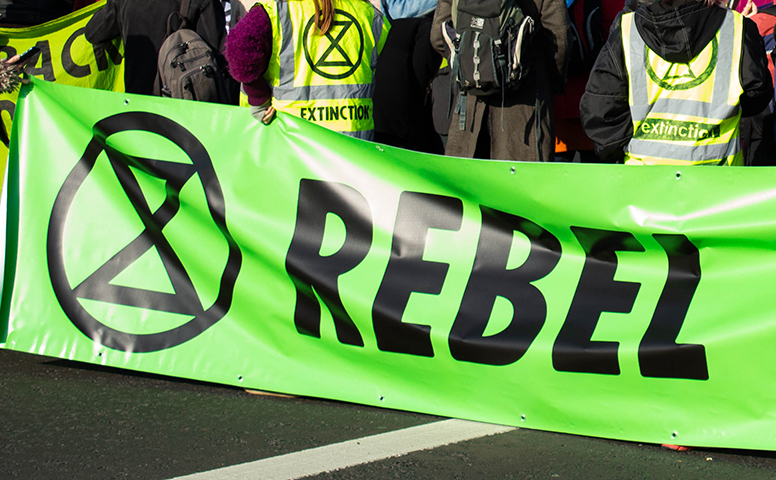10 October 2019
Green Stickers
The answer to climate change.
By Robert Kilconnor
As you sit in a traffic jam wondering why the road ahead has been obstructed, or in a train wondering why someone has glued themselves to the doors, all your frustration and irritation can be summed up in a single question: “why are we waiting?” Here’s why.
Extinction Rebellion, the organisation behind the environmental protest, has three objects. They are:
- that the government must tell the truth by declaring an emergency, working with other institutions to communicate the need to change;
- that the government must halt biodiversity loss and reduce emissions to net zero by 2025;
- that the government must create and be led by the decisions of a Citizens’ Assembly on climate and ecological justice.
These objects are not equal in status because numbers 1 and 3 simply go to the mechanism through which zero emissions can be achieved. In any case things are already being done. The Committee on Climate Change was set up under the Climate Change Act to provide independent advice to the government. As its reports are published, the truth is in the public arena for the press, media and pressure groups to pass on. At the other end, a citizens’ assembly is being created at the behest of six Parliamentary committees.
All that is well enough but procedure is not going to cut emissions to the extent needed. To do that we have to begin to live in a different way and that is going to mean making sacrifices. We need to repair more and replace less; walk more and drive less; buy fewer luxuries; accept that our food should be limited to things which do not have high distances to travel. Life will generally become more expensive and less convenient and that is going to mean rules which affect the way it is lived.
In a democracy it is difficult to impose rules of this sort without public buy-in so the change cannot just be imposed by new regulations. We need a mass movement of the type which recently made racism and sexism unacceptable. We need to apply the same leverage to environmentally friendly living.
The question of course is how this leverage can be adapted to the new target as a matter of mechanics. In the case of sexism and racism it was relatively obvious. Use the wrong term in the office and you are out on the street. Use it in public and strangers will express their disgust. Use it in your home and your children would look at you with an expression of horror. Before long you, yourself, begin to think differently. The environmental revolution too must depend upon disapproval; disapproval of a failure to recycle; disapproval of unnecessary use of the car; disapproval of waste and disapproval of junking things which could be repaired. But most importantly of all, a strong preference towards consuming items which are environmentally friendly rather than items which are not. It is that which will create the sort of day-to-day environmentalism which is needed to power the revolution in public thinking needed to enable, nay force, the politicians to act.
Imagine yourself in the supermarket with a couple of children in tow. You reach out for a particular brand of soft drink which has just the flavour that the children will enjoy but then, just before it goes into your basket:
“No, Mummy (or Daddy), we can’t buy that one it hasn’t got the special green sticker on it.”
If lots of children are saying the same and their comments are supported by frowns from neighbouring shoppers the products without green stickers will disappear from the shelves. That is the dynamic we need and if we could make it work green stickers would become the litmus test in choosing clothes, in choosing cars and in choosing the holidays. Goods and services without stickers would become unfashionable and the fashion would spread around the world.
All that is fine but it depends upon one key component, the Green Sticker. Someone is going to have to set the criteria for them and that job will not be an easy one. For example it will mean balancing the energy consumed in bringing the product to UK supermarkets against the carbon released in the manufacturing process. None of that is easy but it will become impossible if one strays from a basic question of C02 omissions. Focussing wholly on that, a scientific body ought to be able to operate a “Green standard” which could be used as a basis for regulations but much more importantly as a symbol to steer consumer choice.
Look back now at the demands of Extinction Rebellion. They need to add the setting up of an authoritative agency validating the environmental standard of goods. Perhaps it could be done by the Committee of Climate Change. Perhaps it could be done outside the ambit of government by some grouping of prestigious universities. It doesn’t really matter who it’s done by. The important thing is that it is done – now.


